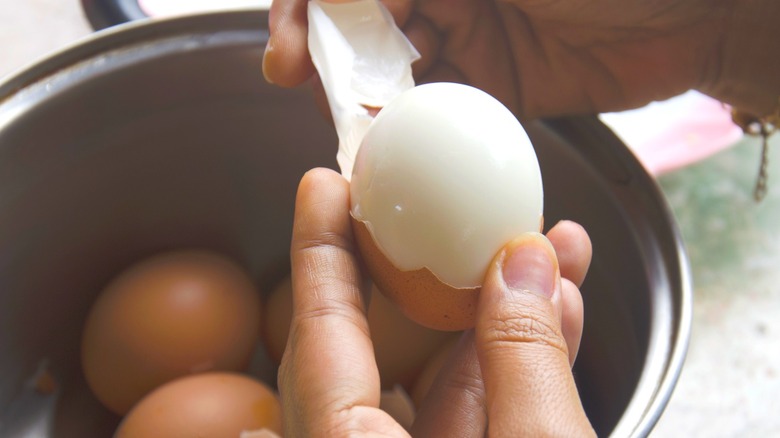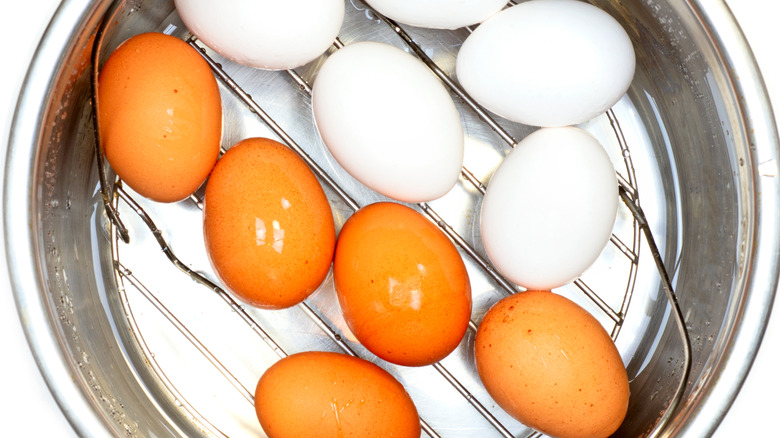A Tip For Easy-To-Peel Hard Boiled Eggs? Start With Your Pressure Cooker
We've all been there: Fighting the painstaking battle of peeling off tough hard-boiled eggshells, emerging victorious but with a thousand tiny shell bits and frustration bubbling over. Of the many ways to cook eggs, hard-boiled eggs are a practical and versatile option, offering a nutritious addition to any diet, whether enjoyed independently or sliced into salads. The good news is it's officially time to ditch the shell fragments because the age of effortless egg peeling has arrived. It all starts with a surprising hero — your trusty pressure cooker. Pressure cookers are renowned for their ability to cook food quickly and efficiently by creating a sealed, pressurized environment. This unique cooking method has an unexpected side benefit — it makes hard-boiled eggs remarkably easy to peel.
So, why is the pressure cooker the secret weapon to flawless peeling? It's all about science. The sudden pressure build-up within the cooker creates a rapid steam environment, gently separating the delicate membrane inside the shell from the cooked egg white. This detachment makes all the difference come peeling time, turning what was once a Herculean feat into a satisfyingly smooth slip-and-slide.
Remember, practice makes perfect, so keep going even if your first attempt isn't a complete peel-off success. With some experimentation and our helpful tips below, you'll be a hard-boiled egg-peeling pro in no time.
The pressure cooker advantage
Before you set your pressure cooker to warp speed, here are some critical tips for peel-perfection. First, use just enough water to create a steaming haven for your eggs, typically around an inch in the bottom of the cooker. If your pressure cooker boasts a steamer basket, utilize it. Stacking your eggs in a single layer helps prevent collisions and cracks. Cooking times can vary depending on your pressure cooker model and desired yolk consistency; however, start with 5-6 minutes for a firm yolk, adjusting down for softer centers.
Another tip is to sprinkle baking soda or vinegar in the cooking water, which can further loosen the membrane for easier peeling. Finally, use an ice bath. Immediately plunge your cooked eggs into iced water for around 15 minutes. This rapid temperature change further shrinks the membrane, making peeling a doddle. Start removing the shell from the wider end, where the air pocket resides.
So, embrace the steamy science and hard-boiled eggs will no longer be a battlefield of stubborn shells. Whip up a deviled egg masterpiece, or enjoy a perfectly cooked snack or egg salad without any peeling woes to deal with.

